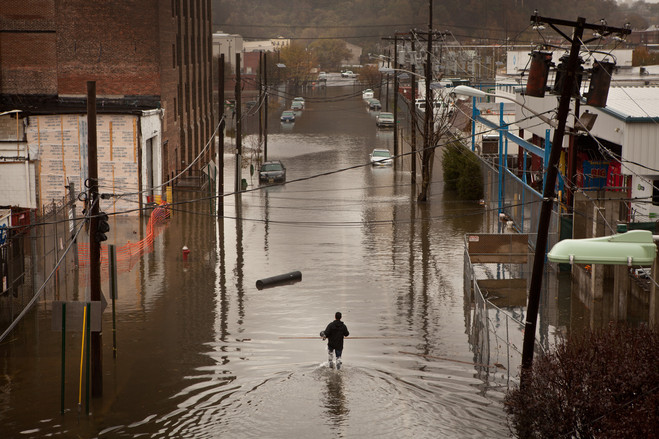
A man walks through flooded streets in Hoboken, New Jersey, after Superstorm Sandy | Emile Wamsteker/Bloomberg via Getty Images
As subsidized rates of federal flood insurance rise, property owners along the coasts get angry. But we need insurance that reflects the risks of a changing planet
time.com - by Bryan Walsh - October 1, 2013
Thousands of homeowners in flood-prone parts of the country are going to be in for a rude awakening. On Oct. 1, new changes to the National Flood Insurance Program (NFIP), which offers government-subsidized policies for households and businesses threatened by floods, mean that businesses in flood zones and homes that have been severely or repeatedly flooded will start going up 25% a year until rates reach levels that would reflect the actual risk from flooding. (Higher rates for second or vacation homes went into effect at the start of 2013.) That means that property owners in flood-prone areas who might have once been paying around $500 a year—rates that were well below what the market would charge, given the threat from flooding—will go up by thousands of dollars over the next decade.
Problem, Solution, SitRep, or ?:
Recent Comments